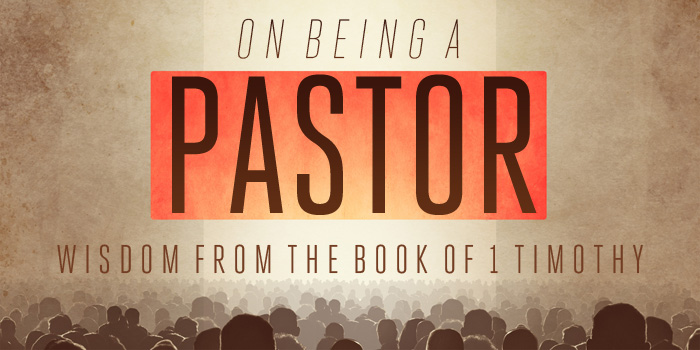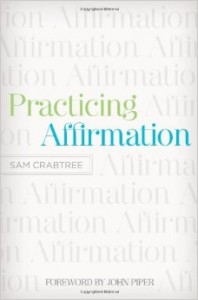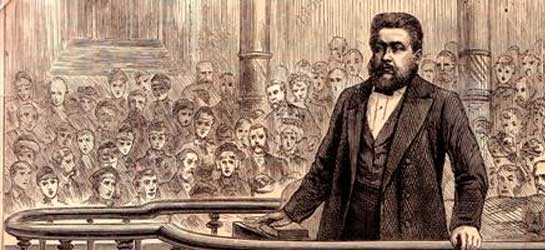In 1846 J.L. Reynolds declared, “Church polity has become the absorbing topic of the Christian world.”
If you ever need a quote to highlight the difference between mid-19th century and current 21st century evangelicalism Reynold’s proclamation of polity’s popularity is one to stash away. Yet, I feel as though we are on the precipice of renewed interest and focus on polity. Do you? Maybe it’s just the circles I move in, but whether or not the word is used, discussions of “polity” are increasingly on the rise. If we pay attention to patterns in church history we ought not be too surprised. Whenever there has been a recovery of the church’s “center” it’s never been long before matters of polity start to take a more prominent place on the stage.
And there’s a reason why this has been so.
A COMING RESURGENCE?
God’s glory in Christ as revealed in the gospel is indeed the church’s foundation, but gospel focus in and of itself is not enough to, as Carl Trueman rightly said, “ensure the continuation of the gospel.” Yes, Luther recovered the biblical gospel in the Reformation, but if you read his later material you find that the church’s health did not depend merely on letting loose the Word and watch everything be ok. Notice what happens next,
By 1525, of course, the picture starts to look bleaker: Protestantism is beginning to fracture; the protagonists in the Peasants’ War appropriate the democratizing language of Luther’s theological revolution and turn it into the battle cry of violent social upheaval; and the simple declaration of the gospel is becoming mired in the quicksands of human affairs. From 1525 onwards, one must search hard for the language of universal priesthood in the writings of Luther (or many other reformers for that matter). The gospel on its own without careful attention to the kind of structural context advocated by Paul, could quickly be appropriated by the chaotic and sinful ambitions of fallen human beings. Thus, from 1525 onwards, Luther drops the ambiguously democratic rhetoric and start to talk more of church order and offices.
This insufficiency of he gospel is surely why Paul, when writing to Timothy, does not simply tell him to preach the gospel. Yes, he certainly does tell him that; but as the aging apostle looks at the world around him and wonders how the gospel is to be preserved after the first generation of leaders directly commissioned by Christ dies out, he also tells Timothy to find ordinary men to appoint as elders. In other words, Paul sees that a church structure, as well as a church message, is vital to the safeguarding and propagation of the gospel.1
Since the turn of the century we have seen an undisputed resurgence of concentration on getting the biblical gospel right. It now seems, and praise God for this, we are taking those historically subsequent steps of understanding the central role in which polity plays in protecting gospel-centrality. Maybe it’s the circles I move in, but I find matters of polity increasingly occupying our thoughts and discussion. Or maybe the one doesn’t feel the resurgence as strongly as I do because polity often walks quietly onto the scene of biblical faithfulness.
A QUIET COG
Take any major sport, analyze the ordinary champions in its league, and what you will find is a team made up of superstars and forgotten players. In the sport after my own heart – soccer – strikers, attacking midfielders, marauding outside backs, and immovable center backs generally get all the attention. But any soccer fan knows that the “No. 6”, the holding midfielder, is the anchor and cog on which the team moves. When he plays his part well, he will go relatively unnoticed. His work isn’t flashy or unusually creative, it steady and calming. But when the “No. 6” is off his game, just watch the entire structure of the team’s center fall apart.
Polity is like the “No. 6” of a healthy church’s theology and practice. Other areas – the gospel, God’s sovereignty, Scripture’s infallibity, missions – get more attention, but if a biblical polity isn’t the church’s quiet, steadfast, and strong cog things will eventually begin to fall apart. Just look at Paul Tripp’s recent statement on all the hullabaloo at Mars Hill Church to see how dangerous short-shrifting biblical polity can be. Further, while it wasn’t as broadly discussed, when the difficulties with Sovereign Grace and CJ Mahaney came to the fore several years ago, you know what one of the first major orders of business became? Restructuring the entire polity for the “family of churches”, complete with a Book of Church Order!
WHERE WE CAN BEGIN
Polity is a quiet force in the church, and is thus one that we pastors must give specific attention. We need to think hard and biblically about church structure and governance. We must consider things like:
- Who are elders and what must they do?
- Who are deacons and what must they do?
- Who has the final authority in a local church: the presbytery, bishop, elders, or congregation?
- Does the Bible give instruction for two kinds of elders: teaching elders and ruling elders? Or, as in the case of many multi-site churches, what does the Bible have to say about a central group of elders overseeing the individual campus elders?
- What bearing ought biblical polity have to play on the prudence of multi-site models?
- What role of leadership and service can women occupy in the church?
- What is the local church’s relationship/obligation to other churches in the city?
- What about church membership? Is it something the Bible commands as obedience or commends as wise?
- What about church discipline? What role does the gathered church play in the discipline of wayward members and pastors?
These things aren’t merely tangential topics, but they cut to the core of the safe-guarding of the gospel. So let’s wrestle with them. Far from pushing the gospel to the periphery, polity is a vital cog for perpetuating the purity of the church’s gospel witness.
- Trueman, http://www.reformation21.org/blog/2012/04/the-gospel-is-insufficient.php ↩







